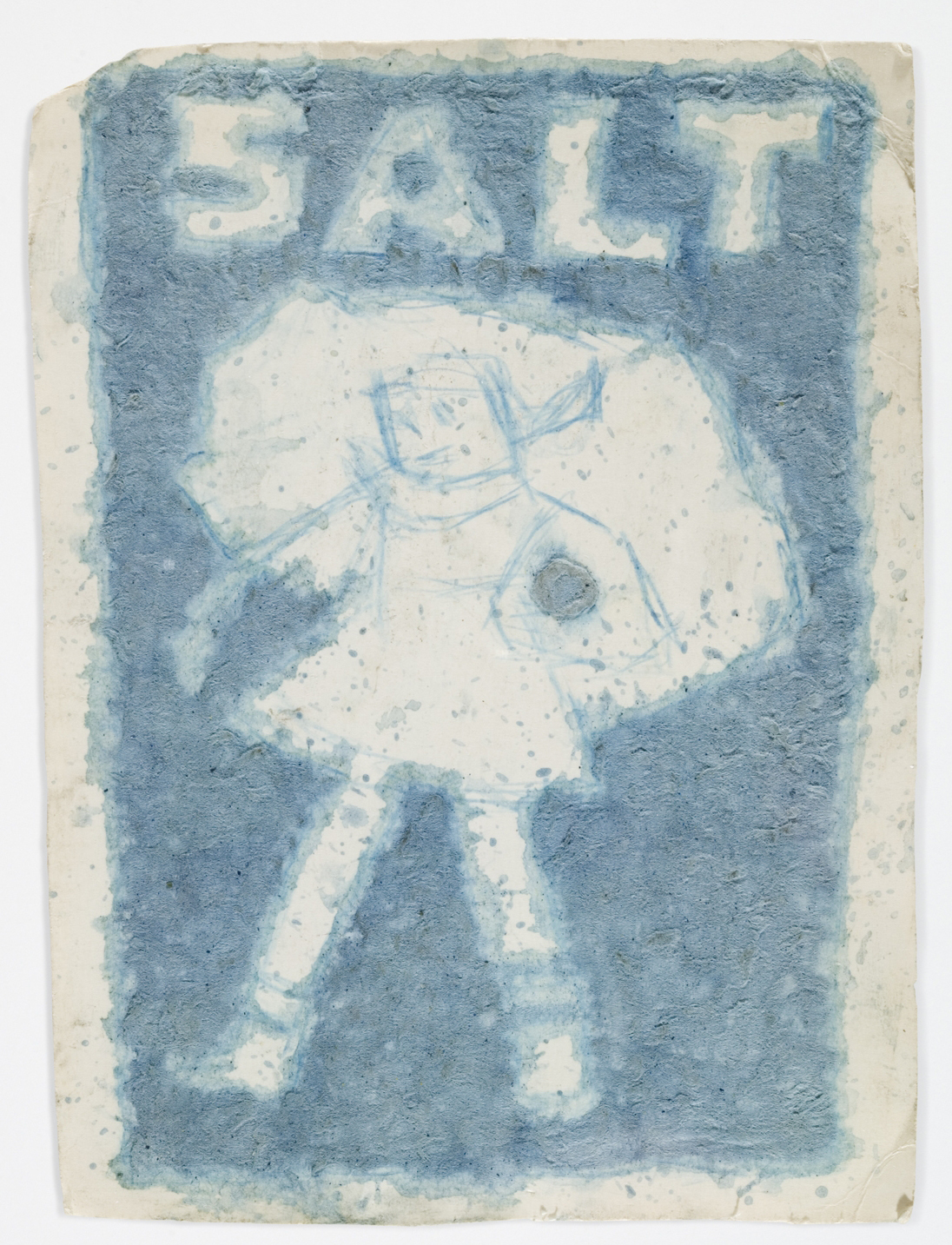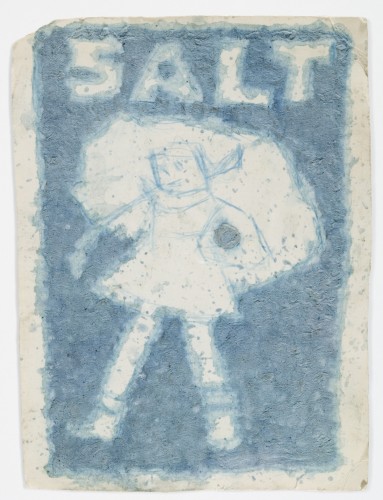Five Questions with __________ is an experiment with flash interviews. The series on poets continues with poet CAConrad. If you are dejected or confused or depressed about the place of art in the age of mass technological fuckitallwithery you might consider reading Conrad, who bursts in on that debate from the bitterly frigid outdoors with a warm gust of joyousness, righteous anger, and hard-won self-possession. His poetry is an outstretched hand with a note scribbled inside that says, Art makes the world go 'round.
For Conrad, an active questioning of where art comes from and the interpellation of the writer/reader/listener within that enterprise is at the center of things. He shows you the physio-psychological labor behind that work by exposing carefully prepared 'somatic exercises' of which he is a creator and participant—as far as 'teaching' writing goes, it's an egalitarian performance.
In contrast to the kind of confessional poetry that starts with the physical body and points its arrow inward, Conrad begins with the physical and mental limitations imposed on his body (not to mention the socio-economic limitations imposed on the materially deprived body and the queer body), then allows himself to find a space within those limitations to face outward. Few poets are inclined to show the stitchings beneath their polished garments: Conrad not only shows them, he'll stand by and watch you show yours.
Better to let the seriousness of the somatic project speak for itself. In 'The Right to Manifest Manifesto' that opens A Beautiful Marsupial Afternoon (Wave Books, 2012) he writes, 'I cannot stress enough how much this mechanistic world, as it becomes more and more efficient, resulting in ever increasing brutality, has required me to FIND MY BODY to FIND MY PLANET in order to find my poetry. If I am an extension of this world then I am an extension of garbage, shit, pesticides, bombed and smoldering cities, microchips, cyber, astral and biological pollution, BUT ALSO—' [cont.]. He and I and you are an extension of many things and his is a prophetic reminder to take account of what they are.
During the Renaissance, poetry was used mainly as an instrument of ideological critique. Should it have survived that way?
This question is marvelous in the age of information fatigue. Quite often poetry of our time is bent on critiquing poetry, especially now with Kenneth Goldsmith and Vanessa Place cracking the whip. It’s a worthwhile and droll jaunt with essays like, “Poetry is dead, I killed it.” WHAT FUN, such funerals!! And let’s not forget Bob Perelman’s 1996 The Marginalization of Poetry, a book challenging class structures, wherein lies a nest of different kinds of poetry ownership principles he finds himself up against. Earlier than Perelman and his LANGUAGE Poet friends was The Activist Poets. They were in the San Francisco area mid-twentieth century, and they believed there were two kinds of language: the denotative and the connotative. And from there all of their arguments began. In 1949 W. H. Auden chose for the Yale Younger Poet Award a book by Activist poet Rosalie Moore. The Grasshopper’s Man is the title, and it’s a remarkable collection of poems, one I turn to again and again. It’s clear in Auden’s Foreword that he’s more than a little suspicious of this group calling themselves The Activists. He writes, “…poetry flourishes when the opponents are determined and evenly matched but, if any party gains too complete a victory and succeeds in suppressing its rivals, poetry invariably declines.”
What is most exciting to me is the deliberate entanglement of ideas we can muster these days. Out of Buffalo University there is an extraordinary poetry collective calling themselves TROLL THREAD. Their critique runs to the heart of publishing itself, offering free PDFs of all titles, and as co-founder Holly Melgard says, “If you choose to buy the Print On Demand version, it’s your choice to kill a tree, not ours.“ TROLL THREAD is at its very core challenging concepts WITH concepts. For instance Chris Sylvester’s book THE REPUBLIC uses a quote from Plato’s The Republic as its cover. The content of the book however is taken directly from a computer game, thousands of lists of items to build a city. It is as he puts it the banal language of any city council meeting: Sewer pipe, ambulance, street sign, zoning board, sidewalk…. The idea of, the result of, and the worn out masters living for The Republic are telling the tale in a most monotonous vernacular of infrastructure.
(Soma)tic Poetry is how I challenge myself these days. The aim of (Soma)tic poetry and poetics is the realization of two basic ideas: (1) Everything around us has a creative viability with the potential to spur new modes of thought and imaginative output. (2) The most vital ingredient to bringing sustainable, humane changes to our world is creativity. This can be enacted on a daily basis. The challenge lies in the Indo-Persian word Soma crossing paths with the Greek word Somatic. As Alice Notely says, “Poetry’s so common hardly anyone can find it.” It’s the best line to repeat into future adage. Live by it, and live by it while finding all around us the poems that have been waiting to be found.
Does outer space hold any appeal, or does it strike you as a winsome opportunity to establish an Exxon fueling station?
It’s funny you should ask this. I’m writing to you from UCROSS, Wyoming at the UCROSS artist residency as part of The UCROSS Foundation. I was accepted because my proposal couldn’t have fit better this environment for outer space. The (Soma)tic exercise, or ritual I’ve been undergoing here is charting stars and creating my own constellations. The end goal is always the poems, so the mythologies I write from these new constellations are shaping into the series of poems for this project. The idea of outer space is being used through an outer space by way of inner, or internal space as well. In other words HOW molecular structures mimic the design of a greater pattern moving around us, and moving with us. The night writing is with the constellations, but the daylight writing is focused on water molecules absorbing sound, then consuming those molecules. I use fruit. And music. I place a piece of fruit on the floor with my laptop to play one track from Victoire’s CATHEDRAL CITY CD. I cover the fruit and laptop with a basket, then a blanket, then pillows, then towels, then a large comforter, all of this to keep the sound close to the fruit, the song played as loud as I can for the fruit to fully absorb the sound. Then I eat the fruit as quickly as I can to actually consume THE SONG before picking up my notebook to begin writing. Writing while digesting a song. Literally. This is outer space much as NASA’s recording of our solar system. We now have recordings of the sounds of our planets moving in their orbits. The sounds of wind striking the ice rings of Saturn, and an apple infused with music by Victoire is one way of realizing the continuum of song, of outer and inner space.
As a child, how did you test your bodily limits (such as holding your breath under water)?
My first love was winter. Winter helped me understand limits more than any other thing, as a season is a thing. I enjoyed nothing more when I was five than blowing snot into my hands, coating the bangs of my hair with it, and standing to face the winter winds. Frozen hair gave me endless pleasure.
Is sex sometimes no more than an itch you have to scratch from time to time, as Che Guevara once said?
We’re allowed to be happy. We really are!! The top five regrets of the dying will either crush your soul because you recognize yourself in the list, or will make you smile that you’re free and clear. It was a nurse who compiled the list. Things like, I wish that I didn’t work so hard. Or, I wish I had allowed myself to be happy. But the number one regret is, I wish had lived the life I wanted instead of the life others wanted me to live. YES!! TO LOVE THIS WORLD!!
Are you more likely to you buy what you cannot afford or spend time you do not have?
I come from very poor people. My family worked in a coffin factory when I was a child. I watched NAFTA strip this little dusty, rural, mostly illiterate town of it’s only source of income. In an attempt to recoup some solvency the coffin factory was turned into a home for the elderly. An assisted living institution, meaning that the town realized in order to survive the loss of making coffins for the dead, they had to start preparing people for the coffins. It’s depressing. But we’re living in an incredibly depressing, violent, evil world where most people cannot find clean drinking water. My nation is killing three children a day PRESENTLY in Afghanistan. But to answer you, I have very little overhead. I do not own a television, never have. I do not have internet at home, and I only use free Wifi available at different locations in Philadelphia where no one cares that you aren’t buying anything.
In the summer of 2011 at the age of 45 my landlord was on the verge of evicting me, and I had less than a hundred dollars in the bank. It didn’t frighten me the way it would frighten some people I know. At age four I lived in a car with my mother for half a year. But literally at the last minute I won the Pew Fellowship. A big sigh, and I truly mean it. It came over me, the relief of not having to be homeless again. It’s a stupid fucking world of jobs, jobs, and jobs, and money, and learning how to get the jobs to get the money. There has to be a better idea for our planet. SERIOUSLY!!
One of my remedies is to open The Philadelphia Poetry Hotel. The idea is to have a building where working class and poor poets can live, and live quite well for only two hundred dollars a month. The idea is to have a place where poetry can thrive!! I was very fortunate to have moved to Philadelphia in the mid 1980s when rent was only two hundred a month, which afforded me hours in the libraries and bookstores learning, truly learning poetry. The greed infiltrating Philadelphia’s real estate “market” (as though shelter is destined for “markets” in a sane world) has destroyed the lives of hundreds of artists. Communities I loved, simply gone. Gone for the sake of greed. No more spending nights in one another’s apartments looking at the latest sculptures, paintings, hearing the latest chapters of novels and songs. It’s all being replaced with overpriced wine bars and boutiques filled with stupid, useless crap no one will ever need. The Philadelphia Poetry Hotel will be a community of poets. The application process will include work samples a panel of like-minded poets will carefully read and choose from. I say like-minded to mean a shared or similar aesthetic. An aesthetic that is experimental. The main thing is to get such a place in operation to take a generation of struggling poets into the world of their poems, and out of the world of greed that wants to drown their spirits.

